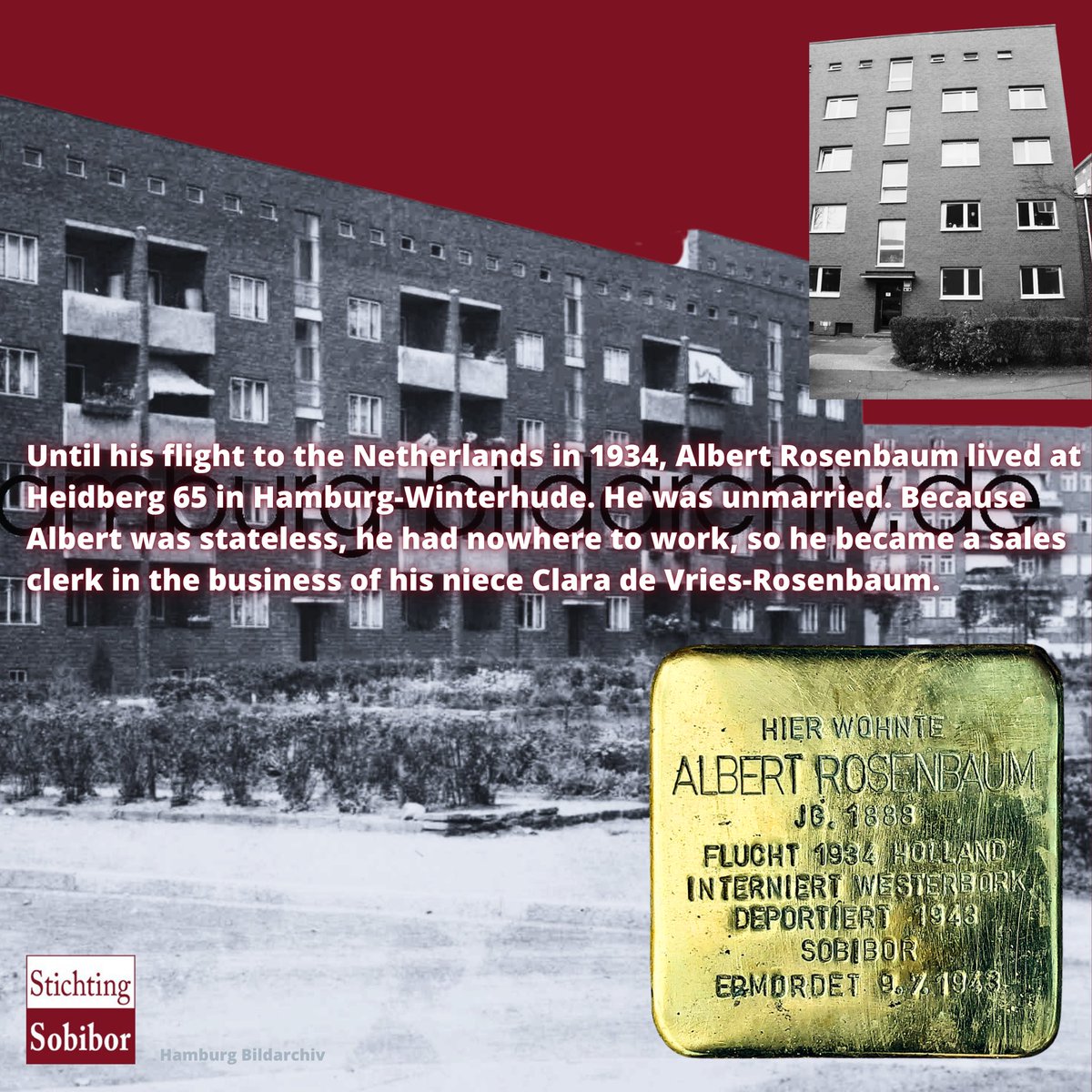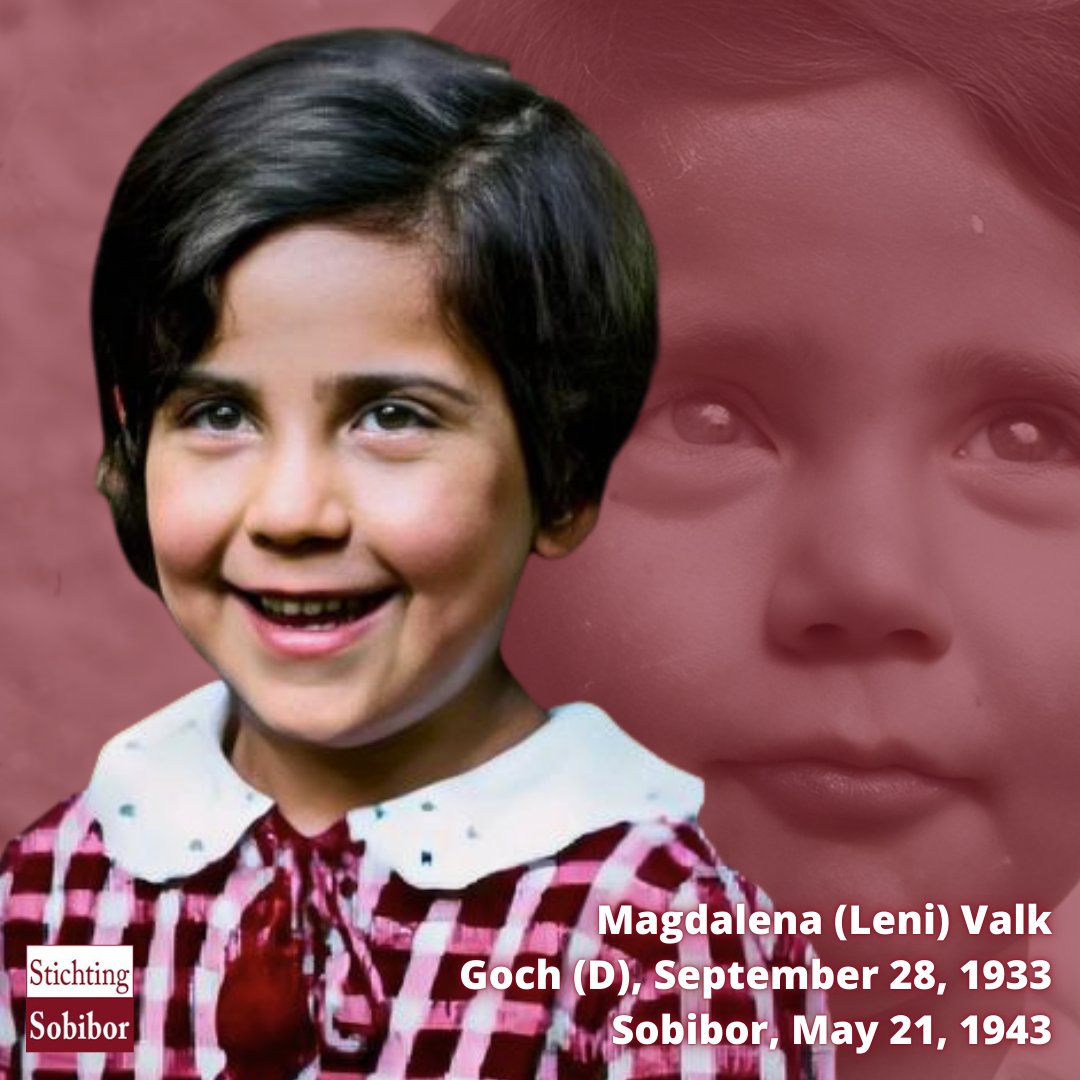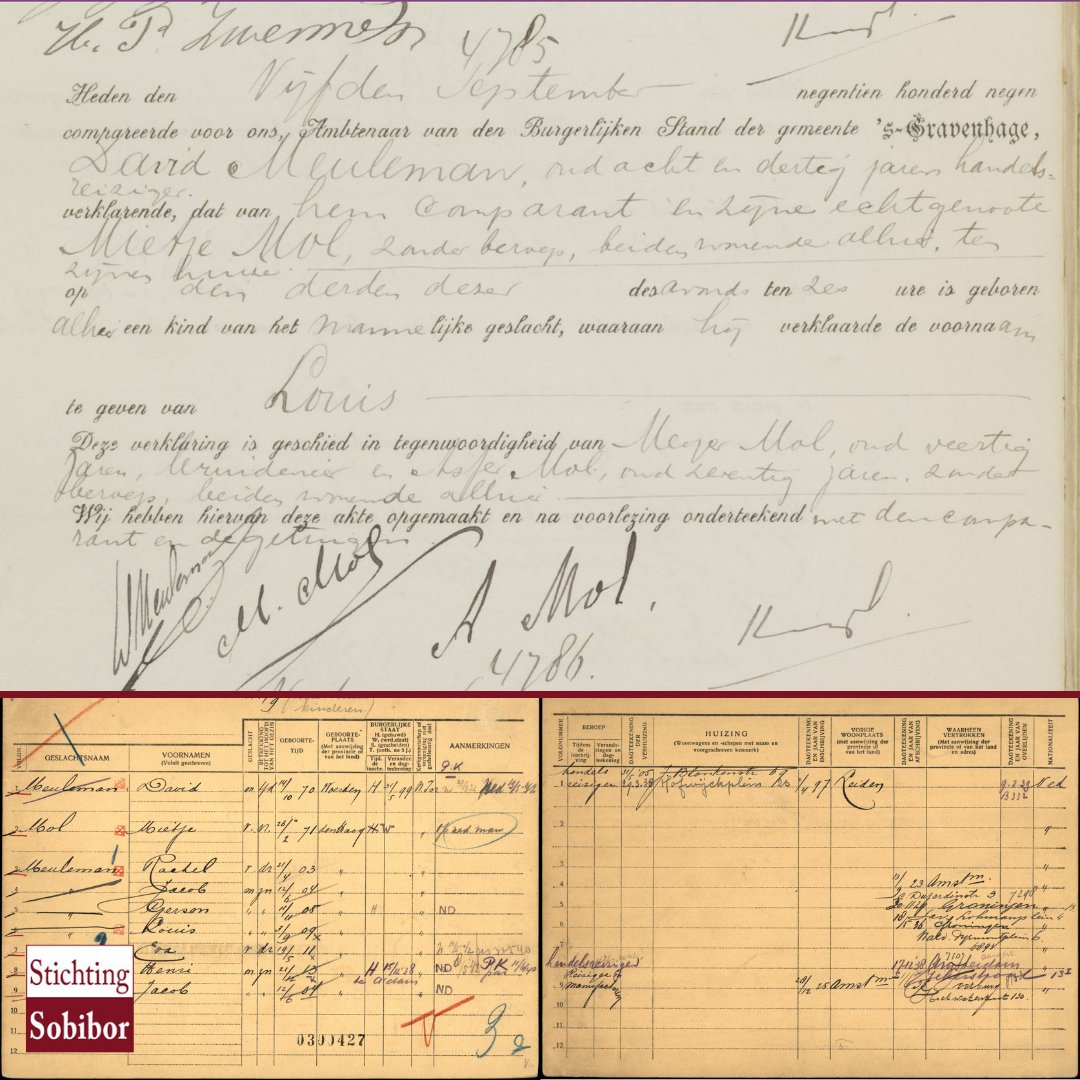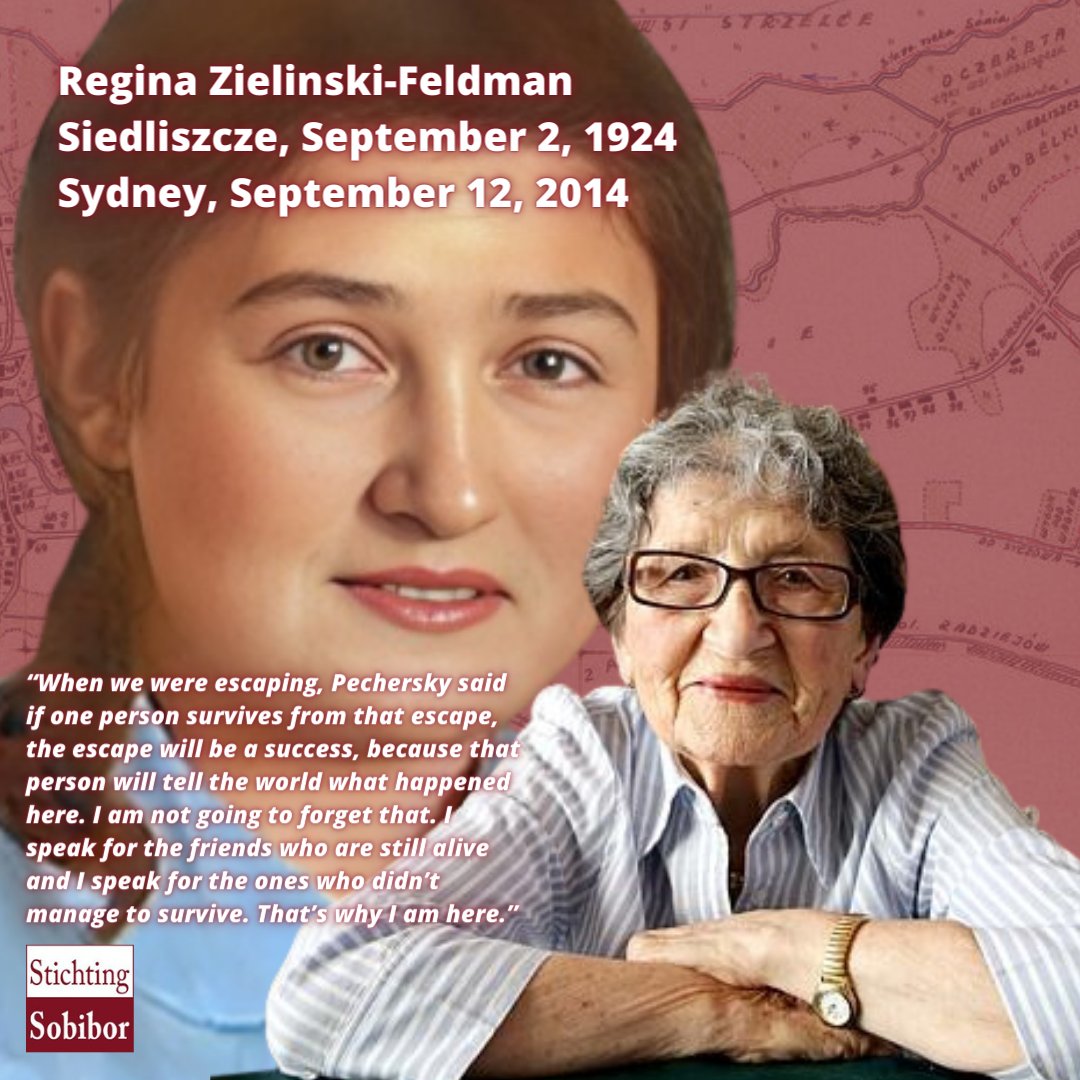11.05.1943 | 11e transport met 1446 gedeporteerden van @kampwesterbork naar #Sobibor | 1 overlevende
Rebekka en Aaron Meijers uit Hengelo zaten sinds 6 mei als strafgeval in barak 67 in Westerbork.
Wie waren zij? En wat schreven zij op 6 mei? 👇🏼 /1
Rebekka en Aaron Meijers uit Hengelo zaten sinds 6 mei als strafgeval in barak 67 in Westerbork.
Wie waren zij? En wat schreven zij op 6 mei? 👇🏼 /1

Aron handelde in van alles en nog wat (vee, slachter, lompen, handel, koeienhuiden, konijnen- en mollenvellen voor de bontverwerking) en iedereen kende hem en hij iedereen. Samen met Rebekka heeft hij 4 kinderen: Leo, Jaap, Rosa en Nanny. /2 

In het najaar van 1942 zijn Bekka en Aron ondergedoken, waarna een opsporingsbericht is uitgevaardigd.
Op 2 mei 1943 zijn ze gearresteerd, waarna ze als strafgeval in barak 67 in kamp Westerbork worden geplaatst. /3
Op 2 mei 1943 zijn ze gearresteerd, waarna ze als strafgeval in barak 67 in kamp Westerbork worden geplaatst. /3

Kort daarvoor is hun oudste zoon Leo samen met zijn verloofde Alie Frankenhuis door het verzet vermoord in Voerendaal. Zij dreigden (vermoedelijk uit wanhoop) andere onderduikers te verraden. De verzetsgroep is later alsnog opgerold, waarbij alle onderduikers zijn vermoord. /4 

Op de dag van aankomst in Westerbork schrijven ze een kaart aan hun oude buren, de Fam. Horstink, die een smederij hebben naast hun huis in Hengelo.
Ze zijn van streek zijn door de moord op Leo. Op hun onderduikadres hebben ze dus gehoord wat Leo is overkomen. /5

Ze zijn van streek zijn door de moord op Leo. Op hun onderduikadres hebben ze dus gehoord wat Leo is overkomen. /5


Aron en Bekka worden direct na aankomst vermoord in de gaskamers van Sobibor en behoren niet tot de 80 personen die als 'Arbeidsjude' worden geselecteerd.
Slechts één van deze 80 weet wel te overleven: Jozef Wins. Over zijn getuigenis later meer. /6

Slechts één van deze 80 weet wel te overleven: Jozef Wins. Over zijn getuigenis later meer. /6


• • •
Missing some Tweet in this thread? You can try to
force a refresh























